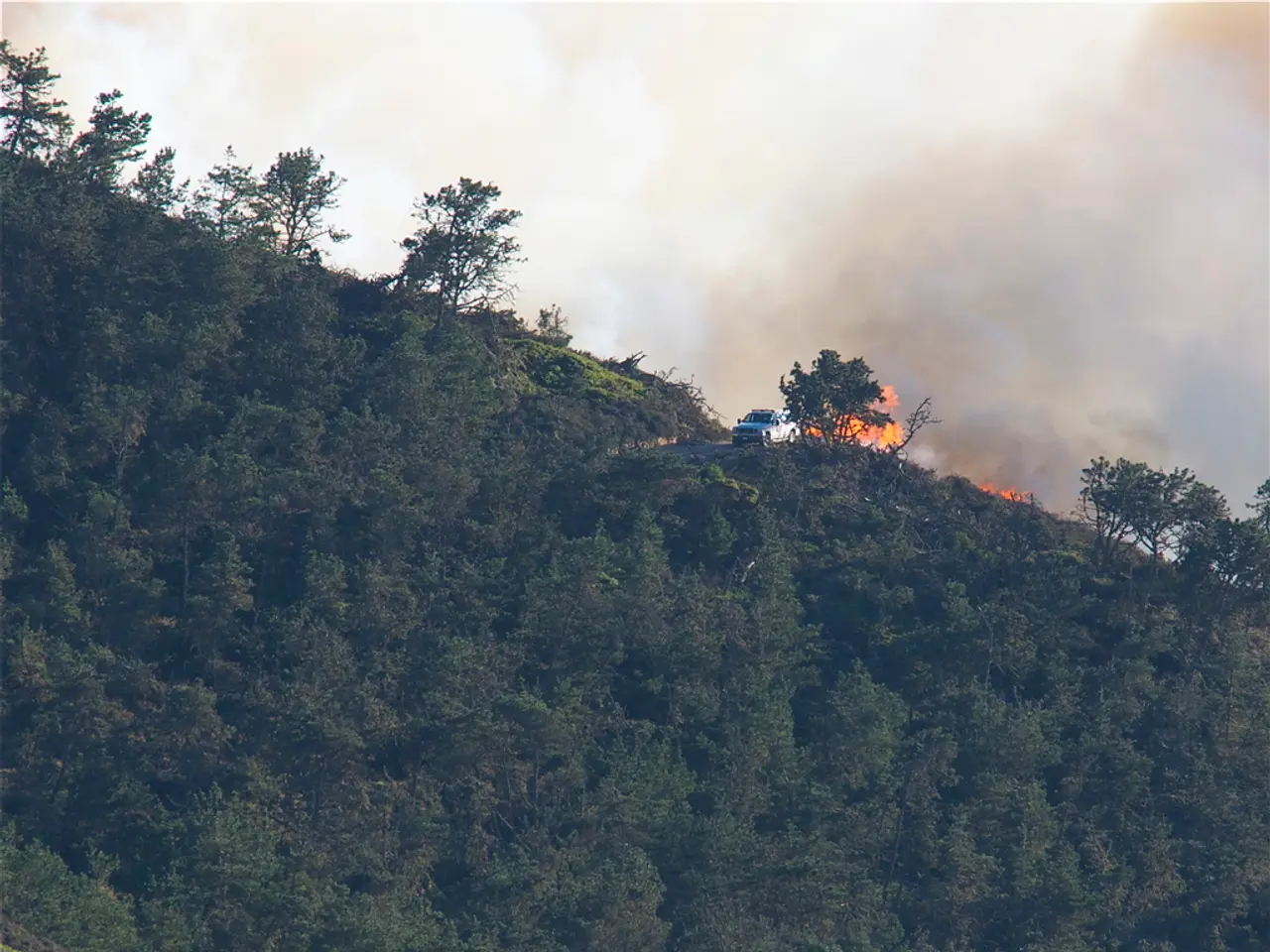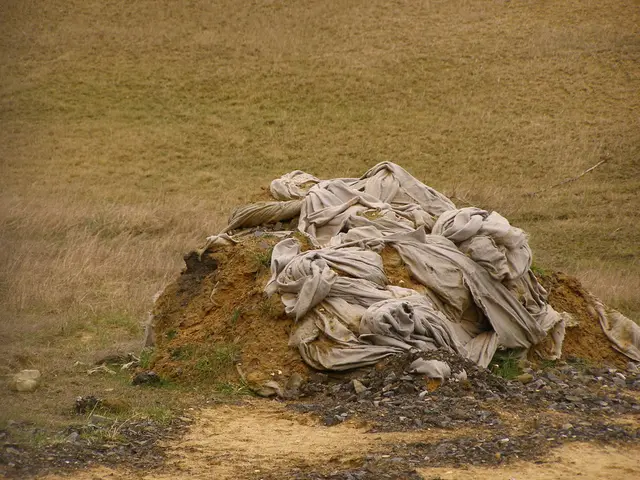City in Greece faces danger from flames, as multiple nations tackle blazes nationwide
A severe heatwave across Europe has led to a series of devastating wildfires in several countries, causing destruction, loss of life, and mass evacuations.
In Greece, the fires have been particularly intense, with over 1 million hectares burned in EU countries by mid-August 2025, far surpassing the average for this time of year. The regions of Achaia (near Patras), Preveza, and the islands of Chios and Zakynthos have been notably affected [1][2][4].
The total burnt area in Europe as of August 19, 2025, reached approximately 967,000 hectares, which is roughly four times the 19-year average for that date [4]. At least 23 deaths have been reported across Europe, and hundreds of injuries, including 13 firefighters treated for burns in Greece [1][5].
In Albania and Montenegro, wildfires have destroyed houses and possessions, resulting in four reported deaths since last week, according to the New York Times [6]. In Portugal, 1,800 firefighters are fighting five major blazes, including one in the eastern town of Trancoso, which was reignited by lightning [6].
Spain is also experiencing a long heatwave, with temperatures expected to reach 40 °C (104 °F) until August 18th, making it one of the longest on record [7]. The fires have resulted in a civilian and a volunteer firefighter being killed in Spain on Wednesday during the country's tenth consecutive day of extreme heat [6].
Dozens of people have been rushed to the hospital suffering from smoke inhalation, and thousands of residents and tourists have been evacuated due to the wildfires [1][5]. Italy controlled a five-day fire on Mount Vesuvius but remains under extreme heat warnings in 16 cities, with Florence touching 39C [6].
Fires have also burned houses, farms, and factories in Greece since Tuesday [6]. The British news agency Reuters posted shocking videos of the flames devouring properties in villages, towns, and tourist islands near Patras and on two islands [6].
Meteorologists attribute the frequency and intensity of these extremes to human-induced climate change [8]. Governments have faced criticism for insufficient forestry management practices that allowed the accumulation of ignitable vegetation, particularly in Spain and Portugal, worsening fire conditions [1].
Firefighting efforts include deploying thousands of firefighters, soldiers, police, and volunteers working around the clock to control multiple large wildfires. Today is expected to be another difficult day for rescue efforts due to high wildfire risk and rising temperatures.
References:
- BBC News
- The Guardian
- Reuters
- European Forest Fire Information System
- Al Jazeera
- The New York Times
- The Weather Channel
- NASA
- The severe wildfires ravaging Europe, as seen in countries like Greece, are not just environmental disasters, but also a significant political issue, with critics questioning the adequacy of forestry management practices.
- The recurring instances of extreme wildfires in Europe, such as the current one, are often linked to human-induced climate change, according to meteorologists, making climate-change a critical topic in the broader field of environmental science and general news.








